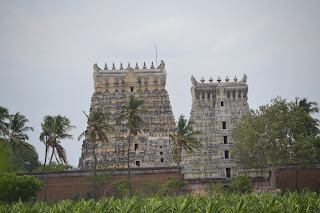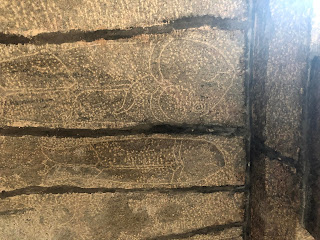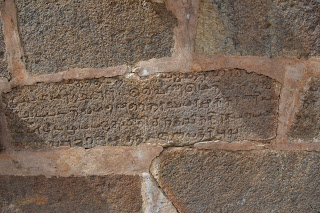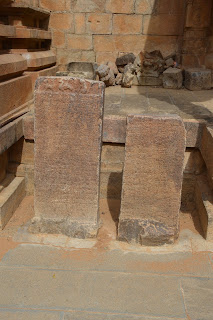Many consider this ancient temple to be the first Navakailasa temple and dedicated to the sun. It is the closest big temple to the headwaters of the Thamirabarani and is surrounded by lush green hills. Initially built by the Pandian kings, the current architecture is mostly from the Nayakkan era. It has a tall 7 tier Rajagopuram that is visible from the hills far away. Smaller than the temple that we saw in Ambasamudram, it is still a fairly large temple that is surrounded by a high granite wall. Today it is by the side of a busy arterial road and was full of people when we visited in the evening. There is another town named Papanasam near Kumbakonam in the Kaveri delta, which is home to another great Sivan temple and should not be confused with this one on the banks of the Thamirabarani. It is located about 60 km to the west of Thirunelveli and close to Ambasamudram.
Papanasam literally means the destruction of sins. There are many unique characteristics to this temple. In front of the Amman Sannidhi there is a large pounding stone and women who visit this temple pound turmeric and offer the powder to the Goddess. An ancient custom. Nice temple.
























































